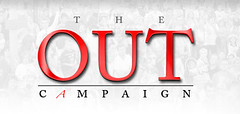Its a strange reality, or rather, a conundrum that befuddles most folks, religious folks and atheists alike: Our human bodies, frail as they all, fall prey to all kinds of sicknesses and ailments. Slipped discs, inflammed knees (From which I suffered immensely, prior to my op), influenzas from microbes smaller than the breadth of your hair, and an assortment of other shitty, distasteful ailments, our bodies are the mechanical equivalent of a volkswagon: It breaks down from time to time, depending on your age (like old cars, old folks tend to suffer from the rigors of old age and wear and tear), your physical and mental condition, and other earthly, mundane factors.
The difference, it seems, is how faith-based homo sapiens and infidels view sickness. It becomes, for the most devout, a kind of punishment, a sign from the heavens if you will, which has been inflicted upon us as a malevolent result of our transgressions against the heavenly deity or deities, and it is with regards to this transgression, otherwise known as "Sin", that we deserve to be punished. Hence, the logic goes, prayers to invisible Cosmic Fathers are dished out as the faithful drop to their knees, gives God a good, old fashioned fellatio, and begs the invisible master for a cure to end suffering.
Most rational people, including religious folks who are not too steeped into their faith based bullshit, tend to adhere to common sense: That hospitals, clinics, and other medical institutions are there simply to cater to the specific ailments of patients, and doctors are consulted because medical science is where cures and treatments can be procured, not churches and religious teachers.
Nonetheless, the tendency to seek divine intervention is there, according to the latest survey.
Belief in Divine Intervention
According to a recent survey (link here), 57% Americans believe in divine intervention in the medical establishment; i.e that God will intervene in cases of extreme stress or trauma that endangers the lives of the faithful.
From a human standpoint, it is sometimes not too difficult to fathom where such beliefs are coming from: Besides a cultural diet of religious indoctrination, there are times, especially in stressful situations, whereby our brains do not necessarily adhere to any form of reality, prefering to suspend reason in the deluded hope that somehow, or somewhere, a deity or supernatural entity will plug us out of our predicament or misery.
Consider the following:
[Pat Loder, a Milford, Michigan, woman whose two young children were killed in a 1991 car crash, said she clung to a belief that God would intervene when things looked hopeless.
"When you're a parent and you're standing over the body of your child who you think is dying ... you have to have that" belief, Loder said.]
The fact that Loder had prayed fervently for a miracle to happen (The excuse that she didn't have enough faith, as some stupid Christians are wont to give when told that prayers are unanswered, can hardly be applied here, since those grievously hurt are her kids) obviously did not turn into reality, and I would venture to say that, such a no-show from the supposed all seeing and all-powerful deity must have dealt a blow to her faith:
[She said her beliefs about divine intervention have changed.
"I have become more of a realist," she said. "I know that none of us are immune from anything."]
The Divine Plan?
Tis a strange philosophical conundrum: If God has a Divine Plan for each individual human being, as proselytized and trumpetted by Christians and other theists, wouldn't the prayer for divine intervention be a direct contradiction to God's divine plan?
After all, if it is God's wish for that person to die, certainly any clamor for him or her to live would drastically alter God's divine plans......how then, does the Christian or theist justify this inexplicable conundrum? & if the deity in question had wanted to intervene, would the mere matter of prayers make an ounce of difference?
Difficult philosophical questions indeed, but perhaps the simplest answers to questions with regards to life and death lie elsewhere.
Death Is Inevitable
As humans, it is suffice to say that we are born mortals, mere travellers on this blob of green-blue planet for a blink of a second compared to all 4.5 billion years of Earth's sagely existence. We die, and even with the best of medical efforts, not everyone can be save from the brink of death. & if statistics are anything to go by, praying will not hedge you a safe bet from disaster or death.
While some may seek solace in seeking divine interventions, the unpleasant truth is that death will descend upon us sometime in our lives, and hoping or praying for divine interventions would simply make the loss more painful, especially to the ones who are still alive, having their false hopes dashed as they see their loved ones slip away to oblivion.
"Our Constitution is in actual operation; everything appears to promise that it will last; but in this world nothing is certain but death and taxes. " -Benjamin Franklin
Sunday, 24 August 2008
Divine Bullshit: Prayers Saves Lives (But Don't Forget to Call on the Doc)
Posted by
BEAST FCD
at
09:29
![]()
Labels: death, Divine Intervention, God
Divine Bullshit: Prayers Saves Lives (But Don't Forget to Call on the Doc)
2008-08-24T09:29:00-07:00
BEAST FCD
death|Divine Intervention|God|
Subscribe to:
Post Comments (Atom)



